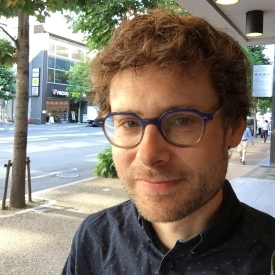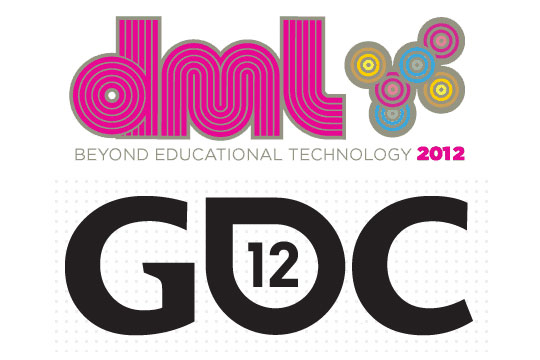
Next week I will be presenting at two conferences: DML (March 1-3) and GDC Education (March 5-6, 2012). Watch for:
TOPIC #1: “Gameful Layers for the Freshman Experience” explores game systems that are embedded within education. Two case studies will be discussed in detail, described by the staff behind them. This panel actually appears at both DML and GDC Education, and is jointly organized by the University of Southern California, the Rochester Institute of Technology, and Microsoft Research. Fellow panelists include Jeff Watson, Tracy Fullerton, Donald Brinkman, Andy Phelps, and Liz Lawley. From the DML description (see also the official GDC description):
The transition to college is a difficult experience for many young people, marked by rapid change as well as social, emotional and intellectual challenges. Additionally, today’s students may feel disconnected from traditional university classroom materials and structures, spending the majority of their out of class time interacting via text and web.
This session will look at two very different experimental games which attempt to scaffold that freshman experience, allowing digital natives to bring their existing communication and media skills to bear on the building of college-level social groups and 21st century skills such as team-building, problem-solving, creative and critical thinking, brainstorming, experimentation, etc.
The two case studies were both launched in Fall of 2011 and each team has worked to assess and evaluate the outcomes so far. Just Press Play, from the Rochester Institute of Technology, is funded by Microsoft Research, and is an achievement-based system that encourages students to think of the obstacles in their path as part of a narrative of their educational development. Reality Ends Here, from the University of Southern California, is an internally funded project from the School of Cinematic Arts. Structured as an alternate reality game, the experience introduces students to the culture and history of the school, encouraging them to become part of that tradition from day one. Designers and evaluators from each project will discuss learning goals, design strategies, assessment approaches, preliminary outcomes and next steps for these innovative digital learning environments.
TOPIC #2: Mobile Quests that Remix Public Events for Social Change. Along with Francois Bar, George Villanueva, and Otto Khera — part of the ParTour team. From the official description, here’s the overview:
In this workshop, small groups will design their own “quests” to hack public urban events. Mobile phones are at the center of our approach, and we will help participants explore how locative media can intersect with public events like festivals, parades and tours. The workshop builds on our experience designing quests within a large Los Angeles event called CicLAvia, which regularly transforms 10+ miles of downtown L.A. into a car-free zone for 80,000 people to re-imagine their city.
Our designs will be based around a timely question: As more cities host events like CicLAvia that open the streets, how can we collaborate with community-based organizations to plant mobile “hooks and triggers” for longer-term civic learning and social change? (This notion of hooks and triggers is borrowed from game design as discussed by Katie Salen.)
Our approach is aggressively democratic on several fronts. We emphasize mobile designs that work in poorer communities and ideally avoid smartphones entirely. The workshop will introduce several technologies, including one that allows for basic phones to create and exchange multimedia using basic text and picture messaging. (This is based on the system designed with day laborers in Los Angeles called Mobile Voices.) Another technology we will cover is a branching text-message tool akin to choose-your-own adventure books.
We also seek to democratize innovation by going beyond technology, and looking to design the social fabric. Social change is sustained and secured with organizations. This necessitates a kind of design which targets community-based partnerships as much as user experience. For this workshop, the small groups will be challenged to create designs that support multiple organizations operating quests in parallel, each with its own social change objectives, including research efforts based at universities.
This workshop will demo and modify the ParTour system we tested in Los Angeles this fall. On our pilot, we rapidly trained more than 70 individuals and sent them on quests as urban storytellers, mappers and photographers.
For the workshop, small groups will each tackle a recurring event in a major city, and develop a plan to hack it with a combination of mobile technology and community partnerships. We will borrow rapid prototyping techniques from the world of game design, using role play and paper designs. Yet all groups will also be asked to apply some of the mobile technologies we will teach. After groups demonstrate their designs by city, the full group will debrief on implications of this exercise for both research and mobile practice.
TOPIC #3: ECDemocratized. Adam Ingram-Goble from our team is presenting (I’m maxed out on panels!) as part of a larger discussion of research from emerging scholars led by James Paul Gee. Our portion:
ECDemocratized: ECD (Evidence-Centered Design) is an approach to educational assessment that relies on evidentiary arguments. We will present the design of a tool based on ECD ideas, that supports the learning of assessment as a 21st century skill. The use of this tool is distributed across both teachers and students such that students are participants in the assessment development process as well as the production of work to satisfy the assessment.

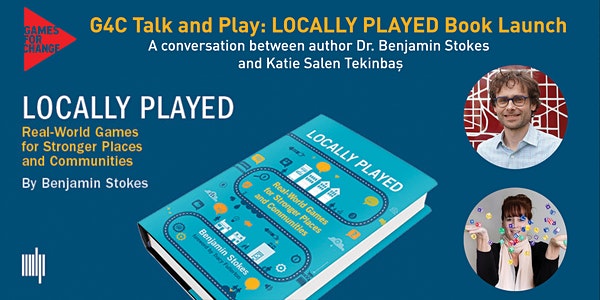
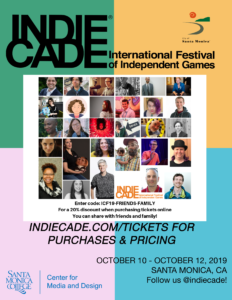
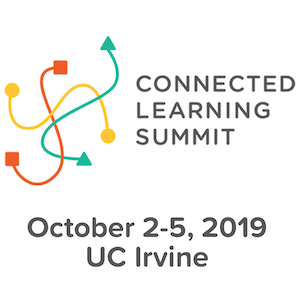

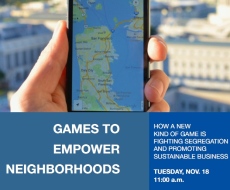
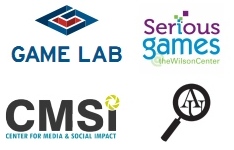 This research was only possibly thanks to the generosity and prior work of Madeleine Taylor of
This research was only possibly thanks to the generosity and prior work of Madeleine Taylor of 


